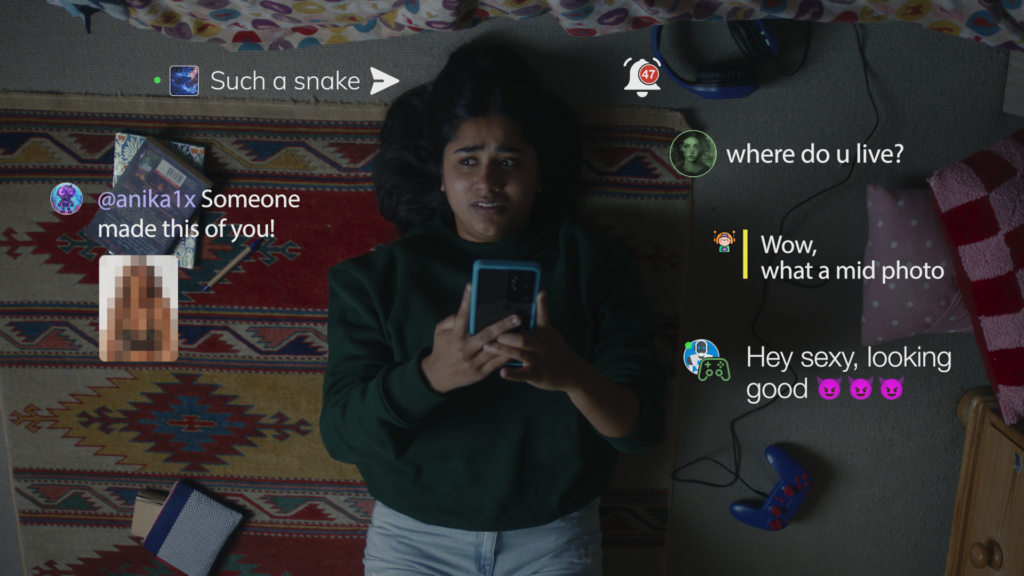By Dana Haidan, Chief Sustainability Officer
In today’s on-the-go society, many of you will be scrolling through this article on your smartphone. Great! As someone who has actively pursued a career in tech, it’ll come as little surprise that I’m a huge advocate of the power of technology and connectivity. Today though, I’d like to talk about the prickly side of our tech love-in.
But first – how many devices have you owned? Do you plan to upgrade soon? And what will you do with your current one if you do?
You likely had to pause to think of your answers. I can help with the first question: over the course of a lifetime, the average person will own a staggering 19 smartphones. And the blunt reality is that each time we upgrade, most of us will either banish the device to a drawer or throw it away in general waste.
Most of us will know first-hand that the vast majority of unused smartphones are destined to gather dust in cupboards and drawers. Our research found there are more than 17.5 million unused phones and tablets stashed away in UK homes.
These banished unwanted devices contain precious metals and minerals that have the potential to be recycled into new handsets or other tech. Alternatively, they could be rehomed with people in need via schemes such as Community Calling.
But it’s the second most likely outcome – simply throwing it away – that I want to talk about on International e-waste Day.
The mounting problem of e-waste
Electronic waste (e-waste) is a rising environmental issue affecting every corner of the world. According to the International Waste Electrical and Electronic Equipment (WEEE) Forum’s global report, 5.3 billion mobile phones were thrown away in 2022. And the trend is not slowing down; e-waste will grow to a staggering 74 million tonnes a year by 2030.
Here’s the hard truth – the UK currently produces more electrical waste per person than any other country in the world except Norway. What’s more, a concerning number of studies are suggesting that the UK could become the world’s largest e-waste contributor as early as 2024.
E-waste has a devastating environmental impact, and cuts across various planetary boundaries – such as climate and biosphere integrity – within which we need to remain for humanity to prosper for generations to come. Worryingly, we’ve already crossed six out of those nine boundaries. Improper disposal of once-loved handsets can lead to the release of toxic chemicals into the soil, rendering it unsuitable for plants and agriculture.
Waterways can become contaminated, and toxic fumes are released into the atmosphere if devices are burned or incinerated, which can cause major respiratory issues for those working or living near waste disposal centres.
Whenever devices aren’t recycled or rehomed, mining for precious minerals continues, resulting in more environmental degradation. And last, but by no means least, much of this e-waste could be used to help contribute to closing the increasing digital divide.
Simply put, e-waste is one of the big problems people aren’t aware of or aren’t talking about enough. But, let me convince you there is room for optimism.
As part of our “Time After Time E-Waste Report” with environmental charity Hubbub, we canvassed the opinions of the public, and specifically Gen Z (born 1997-2012) – the generation which will soon become our future leaders. Refreshingly, this is the cohort most likely to take action – be it volunteering, educating others or even protesting.
These attitudes around willingness to act were reflected in our findings: Gen-Z are most likely to sell their phones either to a retailer (52% of Gen-Z vs 44% of all respondents polled) or another person directly (59% of Gen-Z vs 40% of all polled).
That said, many were unaware of the recycling facilities widely available to support their efforts to do right by the environment. We found that younger generations have been more put off recycling than older ones due to a lack of awareness of where or how to recycle a smartphone (Gen Z (21%) and Millennial (22%) compared to Gen X (17%) and Baby Boomers (14%).
Equipping young people to act
The industry must equip this generation with the solutions and strategies to turn the tide against e-waste.
I’m proud that our pioneering O2 Recycle initiative has been live since 2009 and has saved more than 3.8 million devices from landfill. But as our results show, we must do more to raise its profile among young people, and this is an ongoing priority.
There is a growing appetite for second-hand devices too; our poll found almost half of Brits are more likely to purchase preowned items now than they would have five years ago. Two-thirds of those we surveyed are happy to buy used or refurbished mobile phones – one of the most sought-after second-hand items available.
Whether in-store or online, we must put pre-loved devices squarely in the shop window. Equally, we must encourage “care habits” – such as regular maintenance and software updates – which can elongate the lifespan of devices. Finally, repair services, rehoming schemes and recycling facilities must be better signposted.
The potential for solutions extends far beyond operators and retailers, however. Manufacturers, for example, should design products with modularity, making it easier to repair and upgrade components, which is what consumers are asking for. In addition, reducing excessive packaging and promoting eco-friendly materials can also minimise waste in the product lifecycle.
Regulators, on the other hand, must strengthen regulations on e-waste disposal and recycling to ensure responsible handling of electronic devices. The Right to Repair Act has been introduced, and it’s likely that the EU’s recent push for all manufacturers to equip all devices with standard USB-C charging ports is just the beginning, too.
I’m optimistic about the future. We’ve collectively come a long way, and the attitudes of Gen Z renew my hope. That said, there’s clearly more to be done.
As an industry, we need to pick up the pace and foster collaboration between industry players, charities and government to drive long-lasting change. We must give e-waste warriors every weapon available to tackle one of our most pressing issues.
press enquiries
press enquiries






